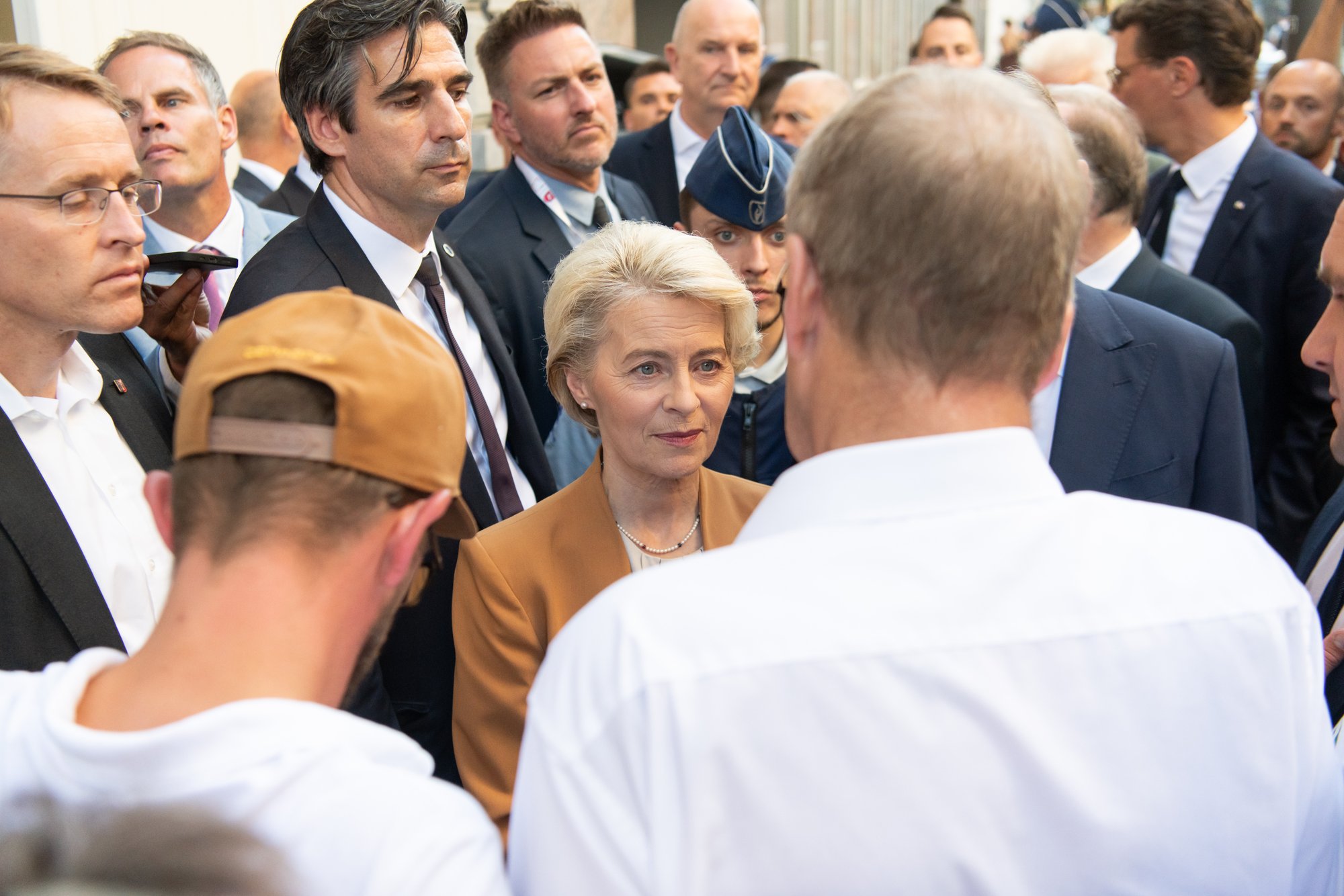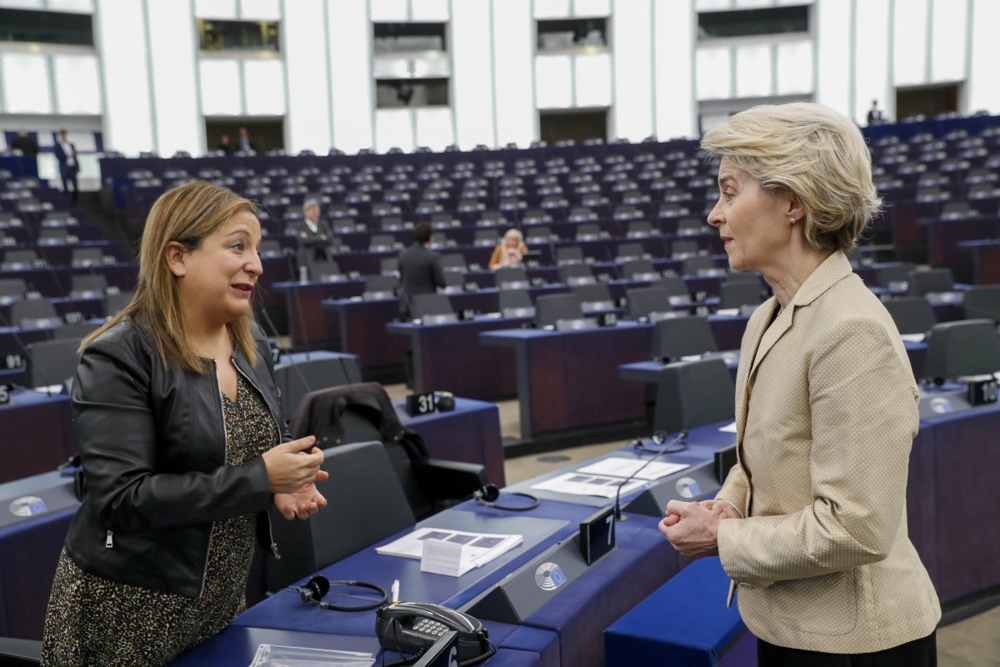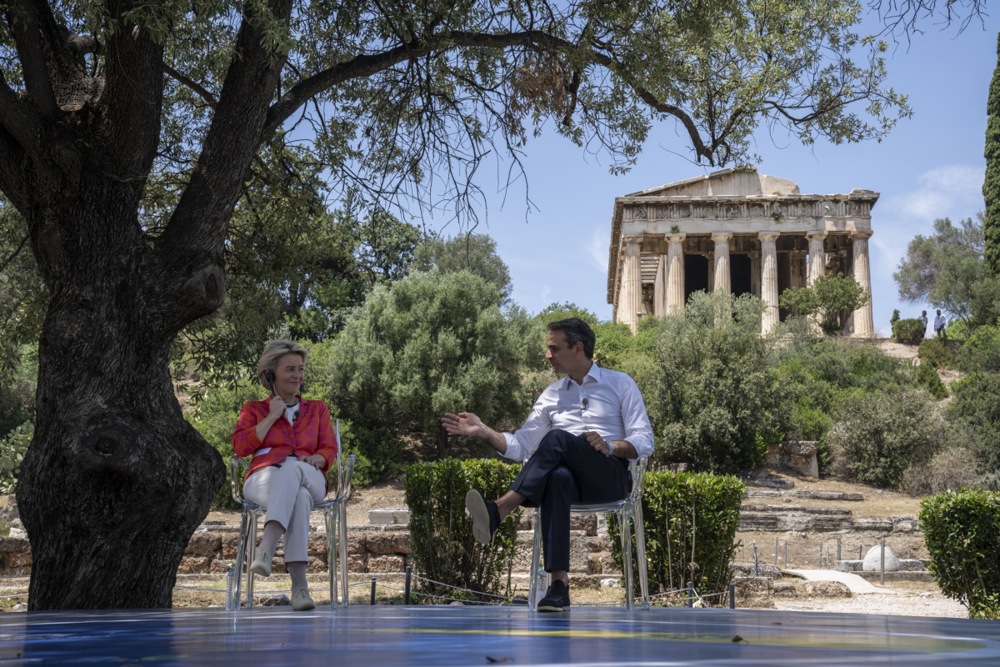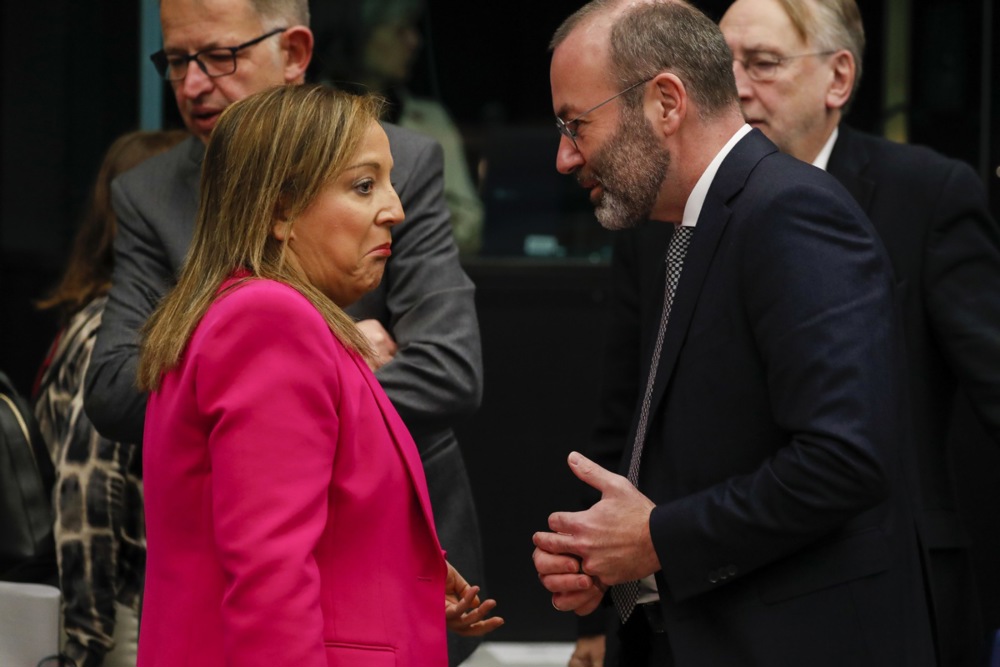European Commission President Ursula von der Leyen was in Montenegro on October 31 to push for the expansion of the European Union.
She is currently touring the Western Balkans, where six nations are still waiting to join the EU as candidate countries.
This comes amid determination by the EU, driven by Russia’s invasion of Ukraine, to enlarge the bloc.
Many problems, both between the countries and within them, continue to plague the Western Balkans region.
Speaking at a press conference with Montenegro’s President Jakov Milatović about the country’s EU membership, von der Leyen said they were there “to make it happen”.
She added that was she was delighted with “how committed the people of Montenegro are to joining the European Union”.
Von der Leyen’s visit began on October 30 in North Macedonia and Kosovo. Her visit to Macedonian capital Podgorica will be followed by a trip to Serbian capital Belgrade later in the afternoon of October 31, where she aims to talk with Serbian President Aleksandar Vučić.
“It’s a very clear sign of the great importance that we give … the enlargement process, in particular the … Western Balkans”, EC spokeswoman Ana Pisonero said of the tour.
That is despite the fact that the region is currently troubled by a host of divisions that may hamper enlargement prospects.
In Montenegro, the current pro-EU Prime Minister Milojko Spajić was appointed just the day before von der Leyen arrived. His appointment rested on achieving the support of his pro-Serbian coalition partners, who had one of their own appointed as house speaker.
In a nation highly polarised between those who want Montenegro to re-unify with Serbia and those who wish for it to remain independent, this appointment led to mass demonstrations the night before the EC President’s arrival.
?? Led by the opposition, citizens in Podgorica protested against the appointment of Andrija Mandic (NSD/NOVA), who is pro-Serb and pro-Russian, as the new parliament speaker. pic.twitter.com/C8UkPE1UgD
— kos_data (@kos_data) October 30, 2023
Given the divisions present in the country, what might appear the irony of the situation appeared lost on von der Leyen when she said: “Montenegro is blessed with a very diverse society.”
Relations between Serbia and Kosovo are also a significant concern regarding the EU’s enlargement plans in the region.
The status of the Serb minority in Northern Kosovo has been at the centre of a conflict that erupted in a violent shootout in September between Kosovo Serbs and the national police.
The EU has been attempting to mediate between the countries since the beginning of 2023 but it appears the situation has actually deteriorated.
Efforts to find a compromise between Vučić and Albanian Prime Minister Albin Kurti recently led nowhere. Kurti refused to agree to EU and Serbian demands that Kosovo create a special Association of Serbian Municipalities for its Serb minority.
In addition, Kurti asserts that the Serbian military was involved in September’s shootout.
The EC on October 31 confirmed that the EU was co-operating with Kosovar authorities in investigating the firefight but gave no further information.
The recent deadly shootout in Kosovo between heavily armed ethnic Serbs and Kosovar police now gives authorities in the capital Pristina the upper hand against the EU, analysts have told Brussels Signal. https://t.co/SdUBZ2Jvdc
— Brussels Signal (@brusselssignal) September 29, 2023





